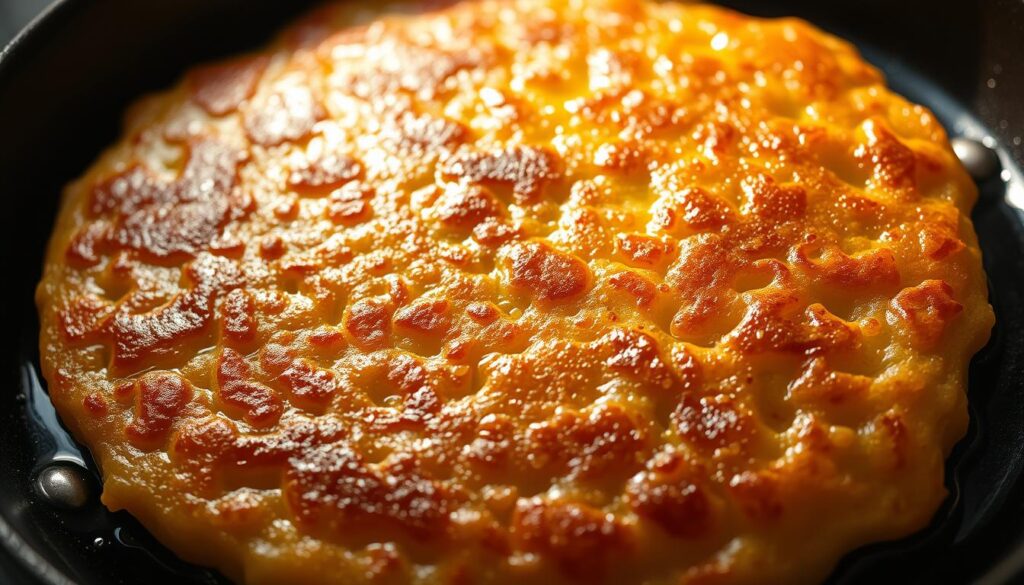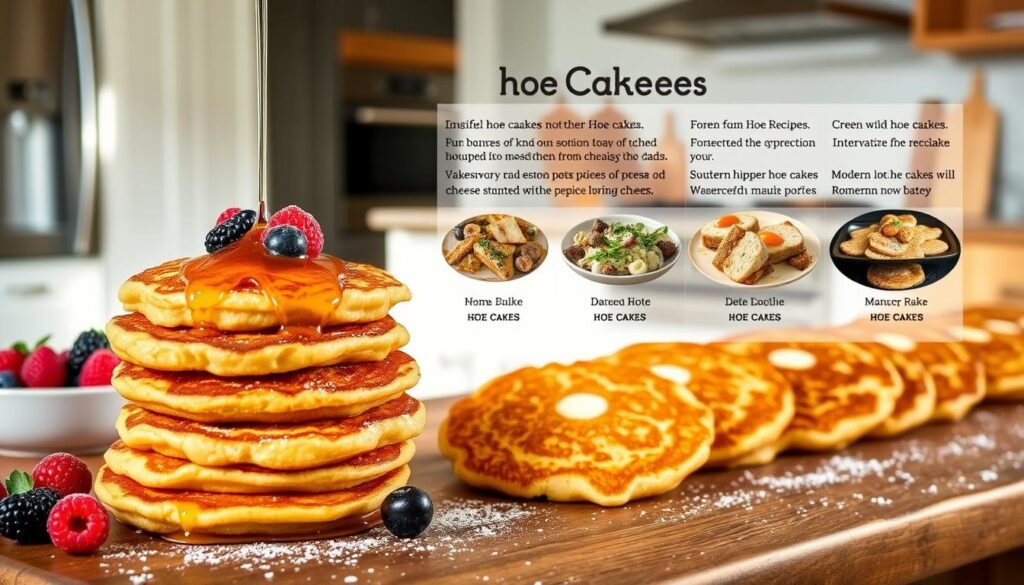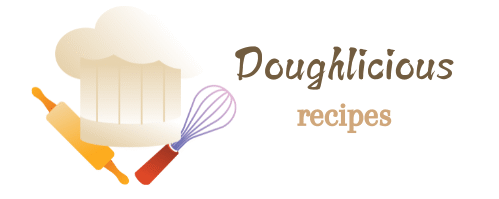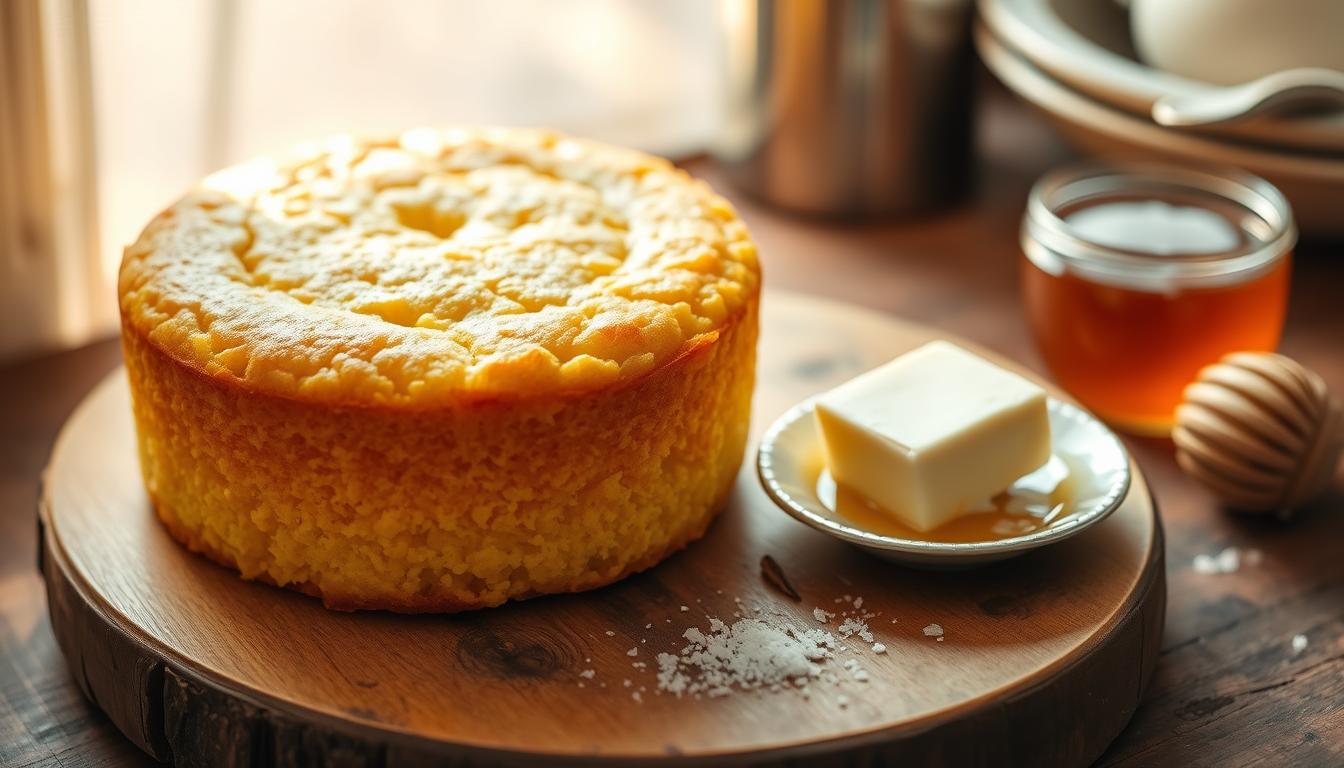What Is a Hoe Cake? Southern History and Easy Cooking Tips
Table of Contents
A hoecake is a treasure in Southern cuisine. It’s a simple yet tasty cornbread that has lasted through generations. It started with home cooks who made something special from basic ingredients.
In Southern cooking, hoecakes are a standout. They’re not like regular pancakes. Instead, they offer a unique taste and texture that links today’s kitchens to the past.
Made from cornmeal, water, and sometimes buttermilk, hoecakes show Southern cooking’s creativity. Their name tells a story of how people used to cook with little. It’s a nod to the resourcefulness of enslaved people and farmers.
Hoecakes are great for breakfast, as a side, or even as a snack. They’re loved for their simplicity and rich flavor. Exploring this cakes will take you on a journey through Southern culture and cooking.
Origins and Historical Significance of Southern Cornmeal Cakes
The story of hoecakes is deeply rooted in the American South’s rich culinary landscape. It goes back to the clever cooking methods of Native Americans and the traditions of antebellum cooking. These cornmeal cakes are more than just food. They tell a story of survival, creativity, and resilience.
Native American Culinary Foundations
Before European settlers came, Native American tribes were experts at making cornmeal. They created johnnycake recipes that shaped Southern cuisine. These early recipes showed how to make meals from simple ingredients.
- Corn was a staple crop for many indigenous communities
- Initial cornmeal cakes were flat, unleavened breads
- Cooking methods involved simple griddles or heated stones
Plantation Fare and Cultural Transformation
During the hard times of plantation cooking, enslaved African Americans kept culinary traditions alive. Hoe cakes became a vital survival food, turning from a basic need to a beloved part of soul food. With limited ingredients, they showed incredible culinary creativity.
Etymology of the Name “Hoe Cake”
The name “hoecake” comes from a practical cooking method. Workers used the flat part of a hoe as a griddle over fires. This shows the spirit of Southern cooking – making something tasty with what you have.
Hoe cakes represent more than food – they are a testament to human creativity and resilience in challenging circumstances.
Understanding the Difference Between Hoecakes and Traditional Pancakes
In Southern cuisine, fried cornbread and corn pone stand out. They have special qualities that make them different from regular pancakes. These cornmeal treats offer a unique taste experience that’s more than just breakfast.
The main differences between hoecakes and pancakes come from their ingredients and how they’re made. Pancakes use wheat flour, while hoecakes are made with cornmeal. This gives hoecakes a coarser, heartier texture. Here are the main differences:
- Flour vs. Cornmeal: Pancakes use wheat flour, whereas hoecakes primarily use cornmeal
- Leavening Agents: Pancakes typically include baking powder or baking soda for fluffiness
- Texture: Hoecakes are typically denser and crispier compared to fluffy pancakes
- Flavor Profile: Corn pone offers a more savory, nutty taste compared to sweet pancakes
The way they’re cooked also sets them apart. Hoecakes are fried on a griddle or cast-iron skillet with little oil. This makes them crispy on the outside, unlike pancakes. This method turns simple cornmeal into a tasty Southern favorite that’s both bread and pancake.
Knowing these differences helps us value the rich history of hoecakes in Southern cooking. Whether you love food or just enjoy cooking at home, exploring fried cornbread can introduce you to a world of new flavors.
Essential Ingredients for Authentic HoeCake
Making the perfect cornmeal flatbread is all about the right ingredients. A traditional hoecake recipe needs specific elements. These elements come together to create a crispy, flavorful dish.
Selecting the Right Cornmeal
Choosing the right cornmeal is key to a great cornbread pancake. Stone-ground cornmeal gives the best flavor and texture. Here’s what to look for:
- Fine to medium grind
- Freshly milled if possible
- Yellow or white cornmeal
- Preferably stone-ground
Buttermilk and Hot Water Magic
The liquid parts are crucial in your hoecake recipe. Buttermilk adds tanginess and tenderness. Hot water helps activate the cornmeal’s starches.
| Ingredient | Purpose | Recommended Amount |
|---|---|---|
| Buttermilk | Adds tang and tenderness | 1/2 to 3/4 cup |
| Hot Water | Activates cornmeal starches | 1/4 to 1/2 cup |
Traditional Fats and Oils
The fat you use can change your cornmeal flatbread’s taste. Southern cooks often use:
- Bacon grease for a smoky flavor
- Vegetable oil for neutral taste
- Butter for extra richness
Pro tip: Cast iron skillets are best for a crispy exterior. This makes hoecakes truly irresistible.
Traditional Cooking Methods and Equipment
Fried cornbread has deep roots in antebellum cooking traditions. These traditions shaped how Southern cooks made their beloved hoecakes. Enslaved field workers used the flat part of their farming hoes as makeshift griddles. They cooked cornmeal cakes over open fires during long workdays.
Starting your journey into authentic hoecake preparation means learning traditional cooking techniques. Early methods used simple yet effective tools:
- Cast-iron skillets with exceptional heat retention
- Open fire cooking surfaces
- Flat metal implements like hoes
- Heavy-bottomed griddles
Modern kitchens have updated these rustic cooking approaches. Today, you can make historical recipes with special equipment that mimics traditional methods. A well-seasoned cast-iron skillet is still the best for that perfect crispy exterior and tender interior of authentic hoecakes.
| Cooking Method | Heat Source | Characteristic |
|---|---|---|
| Hoe Blade Cooking | Open Fire | Rustic, Direct Heat |
| Cast-Iron Skillet | Stovetop/Oven | Even Heating, Crisp Edges |
| Modern Griddle | Electric/Gas | Consistent Temperature |
Pro tip: Keep consistent medium-high heat, no matter your cooking surface. This ensures your hoecakes get a golden-brown crust while staying tender inside.
Regional Variations of Hoe Cake Across the South
Southern cuisine is rich and diverse, with johnnycake being a prime example. This cornmeal cake changes a lot as you move through the South. Each area puts its own spin on this tasty dish.
The johnnycake is more than just food. It’s a story of many cultures and places. Settlers, native peoples, and Caribbean influences have all shaped it.
West Indies and Caribbean Connections
The Caribbean has greatly influenced the johnnycake. The journey cake, a relative of the Southern hoe cake, shows the region’s creativity with cornmeal:
- It’s thinner and crisper than Southern versions
- It’s made with local spices and ingredients
- It’s a flexible bread that goes with many meals
Rhode Island’s Johnny Cake Legacy
Rhode Island has its own take on the johnnycake. Their version is a bit different from the Southern ones:
| Rhode Island Johnny Cake | Southern Hoe Cake |
|---|---|
| Made with white cornmeal | Often uses yellow cornmeal |
| Typically thinner and more delicate | Tends to be thicker and heartier |
| Traditionally pan-fried | Can be griddle-cooked or baked |
Every region’s johnnycake shows how Southern cuisine can change. It turns a simple cornmeal recipe into a dish that shows off local tastes and traditions.
Tips for Achieving the Perfect Texture and Crispiness

Creating the perfect hoecake recipe needs focus and knowing the right techniques. The secret to a great hoecake is in a few key areas. These areas turn simple ingredients into a crispy, golden treat.
Your batter’s consistency is crucial for a great hoe cake. Here are some tips to get that crispy, tasty result:
- Use stone-ground cornmeal for authentic texture
- Mix batter until just combined to prevent tough cakes
- Let batter rest for 5-10 minutes before cooking
Temperature control is key for a crispy exterior. Cast iron skillets are best for fried cornbread. They distribute heat evenly and give those crisp edges.
| Cooking Technique | Impact on Texture |
|---|---|
| Preheated Skillet | Crispy golden brown exterior |
| Medium-High Heat | Prevents soggy centers |
| Minimal Batter Thickness | Ensures even cooking |
The fat you use affects your hoe cake’s taste and crispiness. Bacon grease is the traditional choice, giving a rich, authentic flavor. If you can’t find bacon grease, vegetable oil or butter work well too.
- Use about 1/4 inch of oil in the skillet
- Maintain oil temperature around 350-375°F
- Flip hoe cakes only once during cooking
With practice and patience, you’ll get your hoecake recipe just right. Each batch brings you closer to making the perfect Southern cornbread. It’s a treat that will please your taste buds and honor tradition.
Serving Suggestions and Pairings
Hoe cakes are a staple in soul food and southern cuisine. They can make any meal special. These golden cornmeal treats are great for both sweet and savory dishes.
There are many ways to serve hoecakes. They celebrate the rich traditions of the American South.
Sweet Toppings to Elevate Your Hoe Cakes
- Drizzle of local honey
- Maple syrup
- Fresh fruit compote
- Whipped butter with cinnamon
- Powdered sugar
Savory Pairings and Side Dishes
Skillet Cornbread Cakes are best with traditional southern sides. These sides match their crispy texture.
- Collard greens
- Black-eyed peas
- Fried chicken
- Smoked ham
- Scrambled eggs
Cornmeal pancakes are perfect for breakfast, lunch, or dinner. They’re a true gem in soul food are perfect for breakfast, lunch, or dinner. They’re a true gem in soul food.
Pro tip: Warm hoe cakes slightly before serving. This brings back their crisp and soft texture.
Modern Adaptations and Recipe Variations

The classic fried cornbread recipe is getting a fresh makeover. Home cooks and chefs are adding their own twists. This Southern favorite is now a mix of tradition and new ideas.
Today’s Southern cornmeal cake recipes include a variety of ingredients. This adds exciting flavors and textures. You can make your cornbread-inspired hoe cake even better with:
- Spicy jalapeños for a kick of heat
- Sharp cheddar cheese for richness
- Sweet corn kernels for added texture
- Herbs like chives or fresh thyme
Some bakers are mixing cornmeal with all-purpose flour. This makes the fried cornbread softer and more delicate. It keeps the true flavor but is lighter, pleasing today’s tastes.
Your hoecake recipe can be a blank canvas for creativity. Try using ingredients from different places or adding global flavors. Keep the Southern roots but explore new ways to make it. You can choose a crispy, old-school version or a modern twist.
“Cooking is about tradition and innovation dancing together on your plate.” – Southern Chef
Both pros and home cooks are rethinking this classic dish. They show that amazing recipes keep inspiring new fans of food.
Storage and Reheating Guidelines
Keeping your homemade hoecakes fresh is key. Whether you made traditional cornbread or crispy fried cornbread, proper storage and reheating are crucial. This way, you can enjoy them at their best.
Refrigeration Tips
Store your rustic corn cakes in the fridge to keep them fresh. Here’s how:
- Use an airtight container to prevent moisture buildup
- Store cornbread within 2 hours of cooking
- Refrigerate for up to 3 days maximum
Reheating Methods
Here are the best ways to reheat your hoecakes:
- Skillet Method: Restore crispiness by heating in a lightly oiled skillet over medium heat
- Oven Technique: Wrap in foil and warm at 350°F for 10-15 minutes
- Microwave Option: Quick but can reduce crispness – heat in 15-second intervals
For fried cornbread fans, the skillet method is the best. It keeps the outside crispy and the inside soft and warm.
Quick storage preserves the authentic Southern flavor of your homemade hoe cakes!
Conclusion
Hoecakes are more than just a simple cornmeal flatbread. They connect generations through a delicious dish. From Native American roots to plantation kitchens, these breads have evolved from survival food to a cherished comfort meal.
Exploring hoecakes shows their amazing adaptability. They can be a breakfast staple, a side dish, or a base for creative toppings. With just cornmeal, water, and traditional cooking, they become a cultural experience that celebrates southern cooking’s resilience and creativity.
By diving into this cakes’ history, techniques, and variations, you’ve learned about a culinary tradition that’s more than food. These cornmeal flatbreads let you connect with a rich historical narrative while enjoying a timeless recipe. Embracing hoe cakes means joining a living culinary tradition that stays true to its southern roots.
When you make hoecakes in your kitchen, you celebrate history, flavor, and southern culinary innovation. Your connection to this dish is about preserving and honoring a delicious part of American food heritage.

